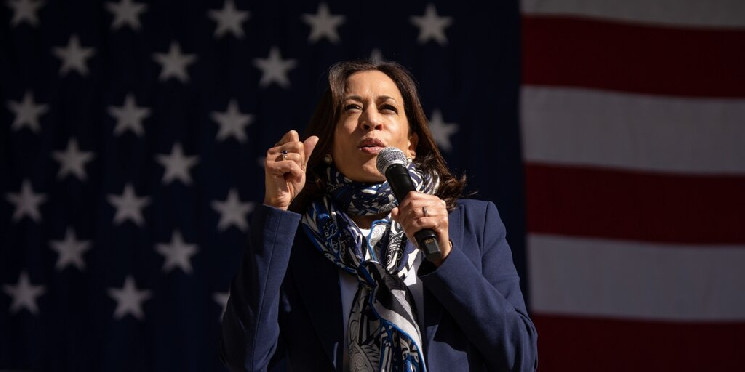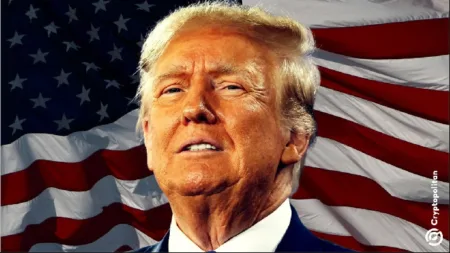Kamala Harris’ improbable ascent to presumptive Democratic presidential nominee has already flipped the script on how November’s election will impact crypto policy. For months, it appeared that former president Donald Trump had become the pro-crypto candidate, while President Joe Biden obstinately refused to embrace bipartisan pushes for industry-related legislation.
But now, all bets are off.
Within 48 hours of launching her campaign, Harris’ camp reached out to billionaire and prominent Bitcoin advocate Mark Cuban with multiple questions about crypto policy, as he told Decrypt. And industry lobbying groups, cautiously optimistic that change could come, have implored Harris to explicitly release a digital assets agenda for her presidency, and to choose a pro-crypto running mate.
How might Harris’ choice of a vice president impact American crypto policy? Below is a list of the top candidates for the job, and where they fall when it comes to blockchain tech.
Josh Shapiro
Pennsylvania governor Josh Shapiro is currently considered a top pick for Harris due to his massive popularity in one of 2024’s most crucial swing states. While he has not said much publicly about crypto, Pennsylvania has become one of the country’s hottest markets for Bitcoin mining under his tenure.
To that end, Shapiro even found himself listed as a co-defendant alongside a publicly listed Bitcoin mining company earlier this year, when a nonprofit sued over alleged pollution caused by energy-taxing crypto mining operations.
Roy Cooper
North Carolina governor Roy Cooper is another rumored contender for Harris’ VP pick, given his strong record in a deeply purple state that voted for Trump twice. Given his rare popularity in the state and his potential utility as a Democratic Senate candidate there in 2026, however, his elevation to running mate could be seen as an unnecessary risk.
On crypto, Cooper made one of his most explicit statements earlier this month, when he vetoed a bill that would have banned North Carolina from pursuing a central bank digital currency (CBDC). Banning CBDCs (or “digital dollars”) has recently become something of a pet issue for Republicans, who view blockchain-like tech in state hands as a privacy threat.
When vetoing the bill, Cooper expressed a somewhat wary—but somewhat flexible—”wait and see” approach when it comes to crypto’s potential utility.
“Efforts are being made at the federal level to ensure standards and safeguards are in place to protect consumers, investors and businesses that may want to make monetary transactions in digital assets, and North Carolina should wait to see how they work before taking action,” Cooper said at the time.
Gretchen Whitmer
While Michigan governor Gretchen Whitmer has said publicly that she does not want to run as Harris’ VP, she is still reportedly being vetted for the position.
Whitmer, who’s forged a reputation as a swing state firebrand who’s found great success in unabashedly embracing progressive causes, has indicated precious little about her stance on crypto, one way or another.
But she is a product of Michigan politics, and Democrats in the midwestern state have shown themselves to be more open to working towards a crypto regulatory framework than others.
Both of Michigan’s Democratic senators, for example, have supported pro-industry legislation. Sen. Gary Peters broke with Biden in May to repeal an SEC rule that prohibited banks from holding crypto, while Sen. Debbie Stabenow has expressed interest in crafting digital assets regulation.
And Rep. Elissa Slotkin, the leading Democratic candidate to replace Stabenow once the senator retires in January, currently boasts an “A” rating from Stand With Crypto, a pro-industry nonprofit.
Andy Beshear
Kentucky governor Andy Beshear fits the same mold as many other potential picks on this list: a popular Democrat governor from a state that skews red.
He is also one of the most unabashedly pro-crypto politicians in the running to become Harris’ VP. In 2021, Beshear signed two bills into law that lured Bitcoin miners to the state with tax breaks and other incentives. Since then, Kentucky has become a hotbed for crypto mining.
As far back as 2020, Beshear signed a bill into law that established a working group to investigate potential use cases for blockchain technology on a state level.
Mark Kelly
Arizona senator and former astronaut Mark Kelly won a key election in 2020 that flipped a longtime Republican seat for Democrats. Since then, he has established a voting record as one of the most right-leaning Democrats in the Senate.
That record has also recently shown itself to skew pro-crypto. In May, Kelly was one of a handful of Democrat senators who broke with Biden and voted to repeal an SEC rule that prohibited banks from holding crypto.
Pete Buttigieg
Harris’ 2020 primary rival, Pete Buttigieg, doesn’t have a resume that’s exposed him much to crypto policy: First as mayor of South Bend, Indiana and then as Joe Biden’s secretary of transportation, the ambitious political wunderkind has rarely dealt with digital assets, nor has he spoken much on the subject.
But in his brief time in the national spotlight, Mayor Pete has established that he is no enemy of American tech and business interests. The former McKinsey consultant was a smash hit with billionaire donors and Silicon Valley’s elite during the 2020 Democratic presidential primary, despite his lack of a national political record.
While his views on crypto remain a question mark, it’s doubtful Buttigieg is poised to emerge as an Elizabeth Warren-level enemy of America’s top crypto firms.
J.B. Pritzker
Illinois governor J.B. Pritzker, a billionaire heir to the Hyatt hotel fortune, is one of the most vocally pro-crypto Democrats rumored to be in the running to join the Harris ticket.
“The future of cryptocurrency is in Illinois,” Pritzker said in August 2021, long before many politicians had come out with positions on the subject.
But since then, the midwestern governor has largely moved off crypto as a key component of his governing agenda—while at the same time pushing to keep Illinois a competitive pro-business environment, and a hub for the development of emerging technologies like quantum computing.
Edited by Andrew Hayward
Read the full article here









